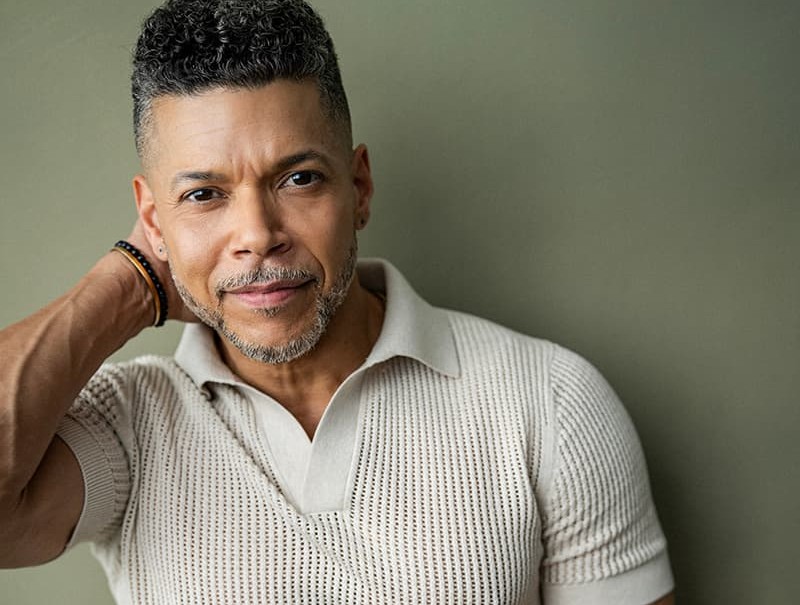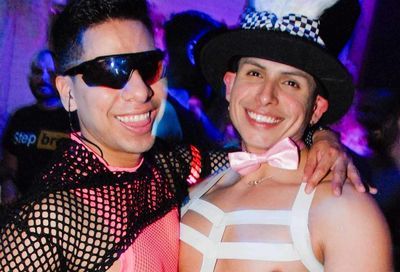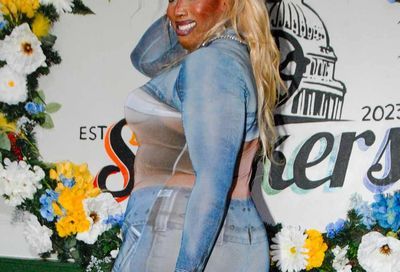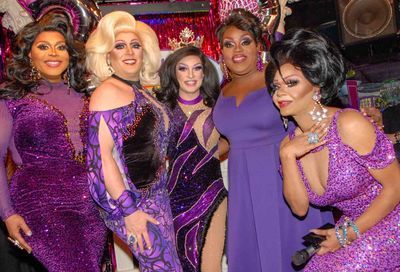Chicago’s First Lesbian Mayor Loses Re-Election
Lori Lightfoot, besieged by fallout from the COVID-19 pandemic and high crime rates, failed to qualify for the April 4 mayoral runoff.

Chicago Mayor Lori Lightfoot, the city’s first-ever lesbian mayor and its first Black woman mayor, lost her bid for re-election on Tuesday, failing to qualify for an April 4 runoff election.
With 99% of precincts reporting, Lightfoot finished third with 17% of the vote behind former Chicago Public Schools CEO Paul Vallas, who earned about 34% of the vote, and Cook County Commissioner and Chicago Teachers Union organizer Brandon Johnson, who earned 20% of the vote.
Because no candidate earned 50% of the vote in the first round, a runoff between the top two candidates will occur in five weeks.
Lightfoot was first elected as a “change” candidate in a 2019 runoff against Cook County Board President and former Ald. Toni Preckwinkle, a longtime fixture in city politics with ties to some of Chicago’s more controversial political figures.
But Lightfoot was never able to live up to her initial reputation as a reformer and more progressive-leaning politician, angering some of the very left-leaning voters who had initially backed her over Preckwinkle due to some of her policy stances on various issues.
Lightfoot also lost an even larger chunk of moderate-to-conservative voters over concerns over rising crime rates, with 2021 becoming the deadliest year on record due to rampant gun-related crime and longstanding local gang rivalries.
According to the Chicago Sun-Times, even though the homicide and shooting rates fell by 14% and 20% from 2021 to 2022, overall crime rose 40% during that same period.
The mayor also earned criticism for refusing to fire her hand-picked appointee, Chicago Police Supt. David Brown, who oversaw the rise in crime, and whose alleged meddling in police department reorganizational efforts reportedly lost him the confidence of rank-and-file officers.
Lightfoot was also saddled with a number of crises out of her control, including the emergence of the global COVID-19 pandemic and outbreaks of violence and looting following the death of George Floyd at the hands of a Minneapolis police officer, as well as unrest related to a resulting push from activists advocating for police reform and a “defunding” strategy.
Even after the worst of the pandemic was over, and COVID-19 vaccines began to roll out, Lightfoot clashed with the Chicago Teachers Union over the delayed reopening of schools and a teacher’s strike rooted in issues related to returning to in-classroom instruction.
She also clashed with various members of the already fractious City Council over a number of issues — some related to policy, some to personal grievances — and oversaw the city at a time when several high-profile corporations decided to move their headquarters out of town, citing high taxes and the rise in violence as justification.
In the end, Lightfoot, a relative political novice, appeared unprepared to deal with the resistance she faced as mayor and lacked a solid base of electoral support needed to assure her a place in the runoff election.
She lost support from left-wing progressives who saw her as insufficiently radical and from liberals who became disenchanted with her actions or stances while in office.
She never had particularly deep roots in the longstanding Black communities on the city’s South and West Sides, where she was outperformed by several other candidates during the first round of voting four years ago.
Besides her dismal approval ratings, which have been mired in the mid-20s, her path to the 2023 runoff was further complicated by the entry of six other Black candidates in the nine-person race, dividing the Black vote.
Vallas, her chief opponent and the only white candidate in the race, was able to consolidate his support by not only winning in wealthier neighborhoods and in a number of the city’s white- and Asian-majority wards, but also preform well in some majority- or plurality-Latino wards.
Even in the Black-majority wards where she won the most votes on Tuesday, Lightfoot generally struggled to earn more than 40% of the overall vote.
“Obviously, we didn’t win the election,” she told supporters in a concession speech. “But I stand here with my head held high and my heart full of thanks. You will not be defined by how you fall. You will be defined by how hard you work and how much you do for other people.”
Vallas, 69, will now face off against Johnson, 46, who emerged as the alternative candidate of North Side progressive and liberal voters who had soured on Lightfoot.
The upcoming runoff election will provide a stark contrast between two conflicting views of how city government — especially the police department and the public school system — should be run, and may also highlight a potential generational divide between older, more conservative voters more inclined to back Vallas and younger, more left-leaning voters who are likely to favor Johnson.
Support Metro Weekly’s Journalism
These are challenging times for news organizations. And yet it’s crucial we stay active and provide vital resources and information to both our local readers and the world. So won’t you please take a moment and consider supporting Metro Weekly with a membership? For as little as $5 a month, you can help ensure Metro Weekly magazine and MetroWeekly.com remain free, viable resources as we provide the best, most diverse, culturally-resonant LGBTQ coverage in both the D.C. region and around the world. Memberships come with exclusive perks and discounts, your own personal digital delivery of each week’s magazine (and an archive), access to our Member's Lounge when it launches this fall, and exclusive members-only items like Metro Weekly Membership Mugs and Tote Bags! Check out all our membership levels here and please join us today!
























